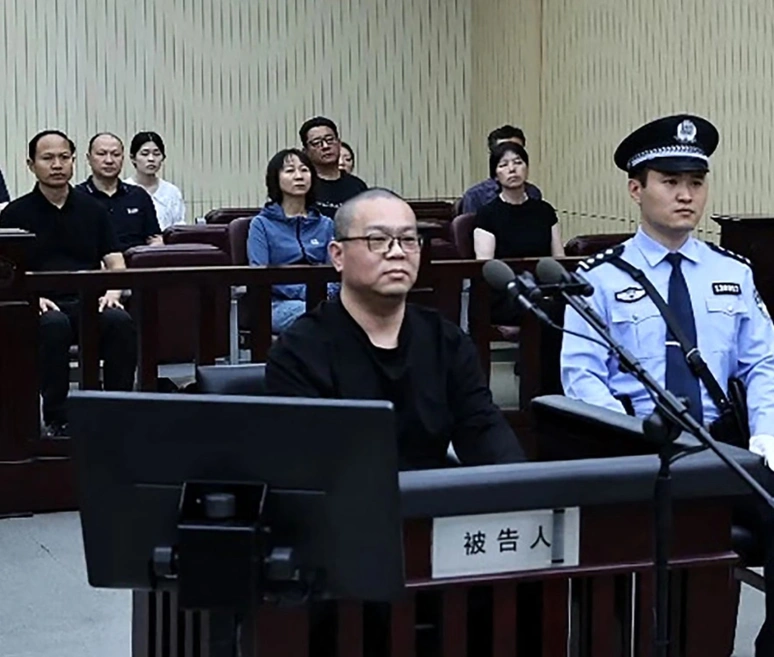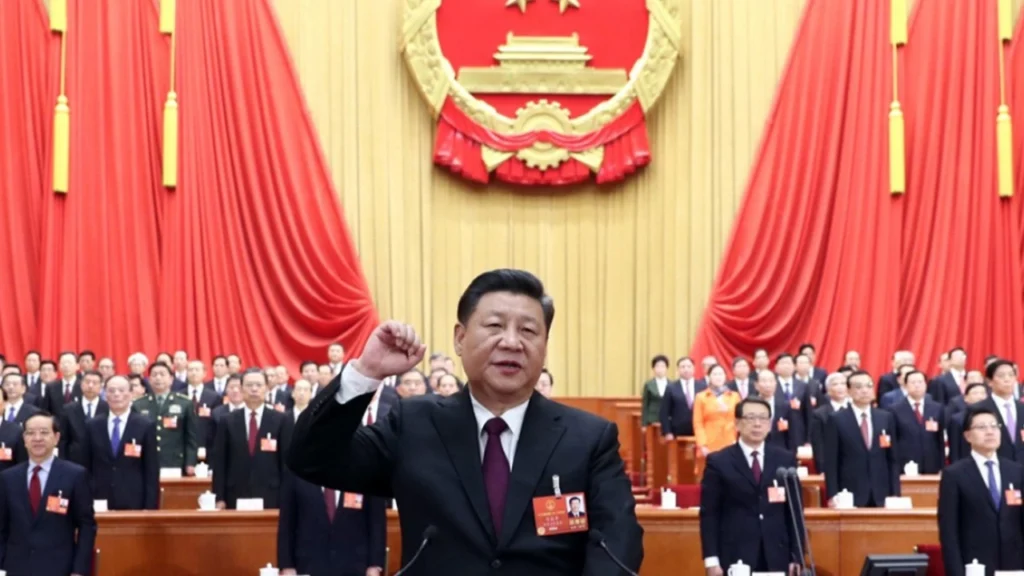According to the news on Chinese state television CCTV, Bai Tianhui, the former general manager of China Huarong (Hong Kong) International Co., was sentenced to the death penalty for committing bribery at the session of the Tianjin Second Intermediate People’s Court in May. October 28, 2024. In addition to this decision, the court ruled that Bai Tianhui should be deprived of his political rights for life and all his personal property should be confiscated by the state.
According to the court’s decision, Bai Tianhui, who worked as the bank’s general manager between 2014 and 2018, was found guilty of accepting bribes totaling 1.108 billion Chinese Yuan (151 million USD). Lao Xiaomin, the previous general manager of China Huarong International Co., was also sentenced to death in January 2021 for accepting bribes worth 1.79 billion Chinese Yuan (260 million USD) and embezzling public funds he managed.
With the amendment to the Criminal Code in 2015, alternative sanctions such as ‘deferred death penalty’ or ‘life imprisonment’ for non-violent crimes were left to the court’s discretion. However, in this case, the court’s decision to directly impose the death penalty without any postponement was based on the following statement: ‘Accepting bribes as a public official is a serious breach of trust, the parties giving bribes gain convenience by using their position to access project purchases and financing agreements easily, and the social impact of this behavior is extremely high. It is shown as ‘bad and seriously damaging the interests of the country and the people.’

There is a right of appeal against the decision made by an Intermediate People’s Court. Accordingly, an appeal will be reviewed even if the defendant sentenced to death does not want to do so. The competent body for appeal is the Supreme People’s Court of the People’s Republic of China (SPC). As has been consistently implemented since 2012, SPC judges will meet with the defendant before making a decision and preparing a report. The decision of the SPC as a panel of three judges is final. As a result of legal reforms, it may be possible for death sentences imposed by Intermediate People’s Courts to be overturned or converted to other alternative sanctions. The cases of Li Yan (2014) and Wu Ying (2012) are examples of this.
Criticisms against China in the prosecution of crimes that carry the death penalty center on the failure to publish statistics on people sentenced to death and the widespread application of death penalties in connection with capital crimes. Apart from the legal consequences of capital crimes and the death penalty attached to them in China, their social and political effects are also an essential criterion for China. Because many crimes, including the death penalty, and the penalties imposed on these crimes are considered state secrets, information about executions is rarely shared with the public. With the reforms implemented since 2006, the death penalty for 13 non-violent crimes has been abolished, and the death penalty has been banned for criminals over the age of 75. In cases that may result in death sentences, the basic principle is centered on ‘cautious trial.’ The main concern of the legal authorities here is that since compensation is not possible, the trial should be conducted with clear and definitive evidence that leaves no room for debate. Although cases requiring immediate execution are an exception, such cases are always handled by the SPC. In cases heard by Intermediate People’s Courts, principles such as open trial, giving the defendant the right to defense and proof, and excluding evidence obtained through torture are generally applied.

With its disciplinary regulations that have changed five times since 1997, the Communist Party of China has placed the fight against corruption at the center of internal party control and adopted the principle of strict control by encouraging party executives to adhere to party principles. Speaking at the Third Plenary Session of the 20th Central Commission for Disciplinary Inspection (CCDI) of the Communist Party of China, Xi Jinping, General Secretary of the Communist Party of China and President of China, stated that the ‘Communist Party of China,’ which was renewed by the Central Committee of the Communist Party of China in December 2023, He emphasized the principles of the ‘Regulation on Disciplinary Procedures’ as ‘an opportunity to learn the disciplinary regulations and conduct disciplinary training.’ In the report published after the relevant board, CCDI and the National Audit Commission launched an investigation against 87 middle-level managers, 626,000 cases were filed across the country, and 17,000 people were investigated for bribery. Those investigated for corruption-related crimes include Dong Yunhu, former chairman of the Standing Committee of the Shanghai Municipal People’s Congress, and Sun Zhigang, former deputy director of the Financial and Economic Affairs Committee of the National People’s Congress (NPC), China’s top legislative body.
Bibliography :
1) https://news.cctv.com/2024/05/28/ARTI5qVog6IXlWABQluQAxxD240528.shtml
2) https://www.ccdi.gov.cn/toutiaon/202405/t20240530_351534.html
3) https://www.globaltimes.cn/page/202402/1307679.shtml
4) https://www.chinadaily.com.cn/china/2012-04/20/content_15103517.htm





